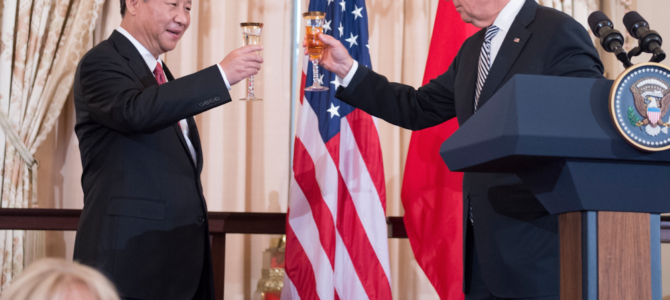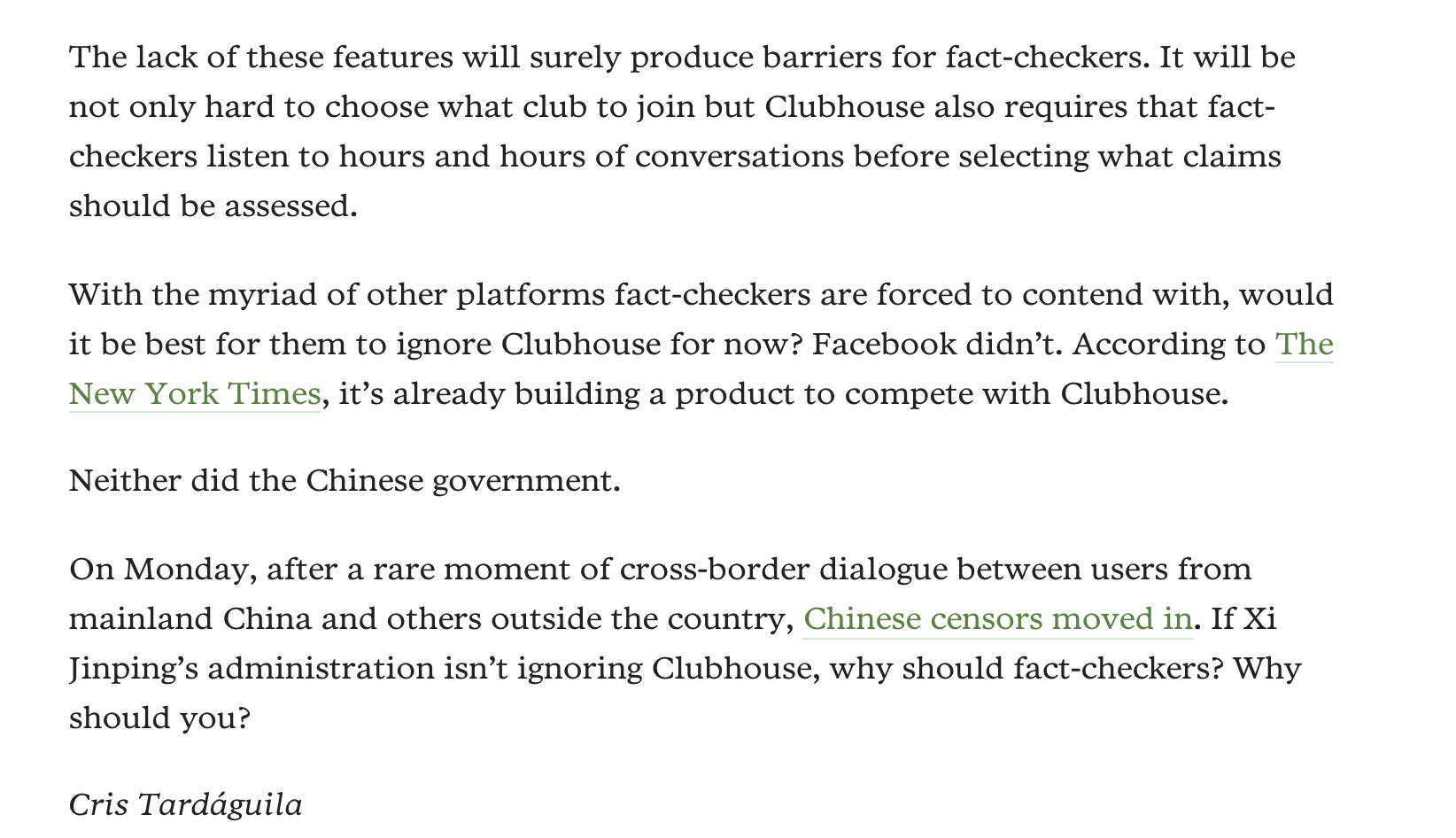
On Thursday, an article in The Poynter Institute for Media Studies labored over the supposed problem with the new iOS social media platform Clubhouse complicating fact-checking. The author praises the Communist Party of China (CCP) for censoring the application, likening fact-checking to censorship and seemingly calling for the U.S. government to institute similar policies.
Discussing Clubhouse, the drop-in audio chat platform that launched in April 2020 and is now number five on the iOS App Store, the article by Cristina Tardáguila laments that videos are not recorded. This prevents documentation for fact-checking: a major blow to journalists who make a living by arbitrating truth.
“It will be not only hard to choose what club to join but Clubhouse also requires that fact-checkers listen to hours and hours of conversations before selecting what claims should be assessed,” the author writes. She continues:
With the myriad of other platforms fact-checkers are forced to contend with, would it be best for them to ignore Clubhouse for now? Facebook didn’t. According to The New York Times, it’s already building a product to compete with Clubhouse.
Neither did the Chinese government.
On Monday, after a rare moment of cross-border dialogue between users from mainland China and others outside the country, Chinese censors moved in. If Xi Jinping’s administration isn’t ignoring Clubhouse, why should fact-checkers? Why should you?

Poynter unashamedly gives positive reviews to the militant censorship tactics of dictator Xi Jinping. The fact that Clubhouse does not maintain recent posts or permit users to record each other threatens the author of this piece—who explains her forgettable experience of skimming through the app and feeling better than everyone based on her elite media status.
This is beyond silly. Complaining that you can't fact-check Clubhouse? Life doesn't come with digital transcripts either! Will these people next demand that fact-checkers be perched next to every speaking human being? Smh https://t.co/8gI1hYJ02u
— Matt Taibbi (@mtaibbi) February 11, 2021
“Idea: Post fact-checkers in every room and then pause for a moment after every sentence for them to do their googling,” podcast host Katie Herzog satirically responded to a Harvard University Nieman Lab tweet criticizing Clubhouse for not being censorious. “If you are found to be spreading misinformation, you get kicked out of Clubhouse/killed.”
If you are found to be spreading misinformation, you get kicked out of Clubhouse/killed
— Katie Herzog (@kittypurrzog) February 11, 2021
On Feb. 8, China blocked Clubhouse after it found citizens were discussing a wide variety of political topics that are normally censored by the Chinese press. Most notably, users in China used the app to communicate about China’s concentration camps in the Xinjiang Province brutally detaining Uyghurs and other Muslims.
“Clubhouse is exactly what Chinese censors don’t want to see in online communication—a massive, freewheeling conversation in which people are talking openly. It’s also a reminder that when there is an opportunity, many Chinese have a desperate need to talk to each other to hear different view points,” Xiao Qiang, founder of the China Digital Times, told The New York Times this Monday.
As The Federalist reported, Facebook has a lucrative fact-checking partnership with Poynter, giving it the power to decide what people can see on the massive global platform.









